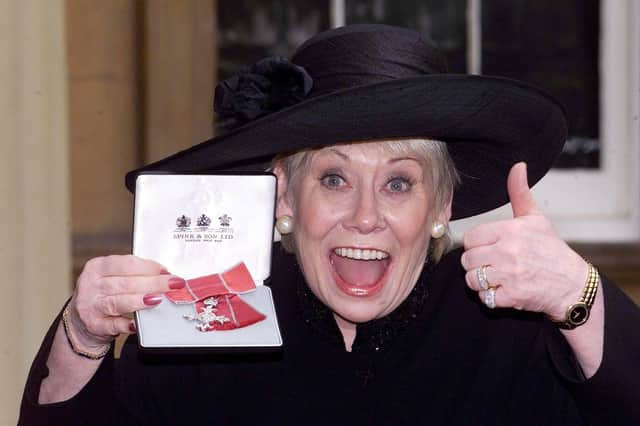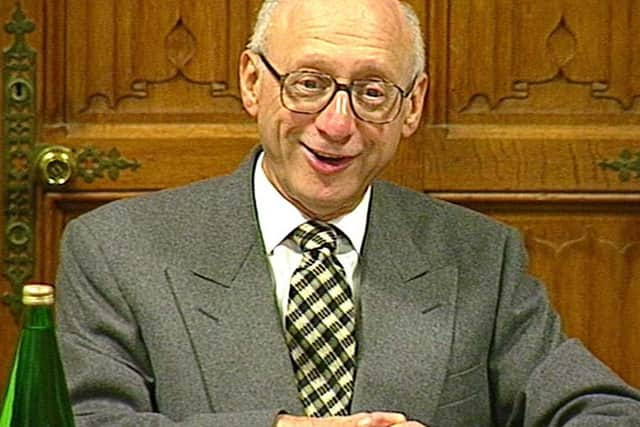How Corrie’s Liz Dawn found her place among the immortals


Sylvia Butterfield’s name appears alongside her better-known stage persona, Liz Dawn, among 241 new additions to the Oxford Dictionary of National Biography, an annually-updated register of those whose lives helped shape Britain.
The work, whose 64,071 biographies include no-one still living, places her in the company of Lord Snowdon, Sir Roger Moore and the Paddington author Michael Bond, all of whom died in 2017 – the most recent year to be included.
Advertisement
Hide AdAdvertisement
Hide AdMiss Dawn, who played Coronation Street’s Vera Duckworth from 1974 to 2010, including guest appearances, and was Lady Mayoress of Leeds in 2000, had been selected for inclusion as someone “who left their mark on the UK”, said the publisher.


Born in Torre Mount, Leeds, she worked as a cinema usherette and an Avon saleslady in the city before winning a talent show at a holiday camp near Scarborough led to engagements in pubs and clubs. At one point she was the resident act at a club next to Butlin’s in Filey, punctuating performances with appearances in adverts and TV plays, notably Colin Welland’s 1974 drama about striking factory workers, Leeds – United!
But at 31 she was living in a council house bringing up four young children, with no idea if showbusiness held a future for her.
She first appeared as Vera Duckworth – then a one-off character in 1974 and recalled in her autobiography: “When I walked into the Street studios for the first time I was already acting. I felt that from the first moment I had to show them I was capable, and you can’t act capable if you behave like a mouse.”
Advertisement
Hide AdAdvertisement
Hide AdShe became a full-time cast member in 1982 and stayed until 2008, after which she made one last appearance.
Another graduate of working life in the old West Riding also appears in the new dictionary of biographies.
The novelist, playwright, and screenwriter David Storey was a miner’s son from Wakefield who had a grammar school and art college education and became a rugby league professional for the club now known as Leeds Rhinos. It was his time there that inspired his seminal novel, This Sporting Life, which was filmed as one of the most popular “kitchen sink” dramas of its day, starring Richard Harris and directed by Lindsay Anderson.
Storey went on to win the Booker prize for his 1976 novel Saville, about a boy growing up in a Yorkshire mining village during and after the Second World War.
Advertisement
Hide AdAdvertisement
Hide AdToday’s publication also includes the Labour MP Sir Gerald Kaufman, who was born at Leeds maternity hospital and educated at Leeds Grammar – where the book records one of his contemporaries as finding him “thoroughly obnoxious”.
Sir Gerald was also a writer, contributing comedy material for the satirical late night BBC show That Was The Week That Was, and prose for the Fabian Society, the Daily Mirror, and the New Statesman before becoming an aide to Harold Wilson.
On the right of the party, he famously described Labour’s 1983 election manifesto under leader Michael Foot as “the longest suicide note in history”.
Support The Yorkshire Post and become a subscriber today. Your subscription will help us to continue to bring quality news to the people of Yorkshire. In return, you’ll see fewer ads on site, get free access to our app and receive exclusive members-only offers. Click here to subscribe.
Comment Guidelines
National World encourages reader discussion on our stories. User feedback, insights and back-and-forth exchanges add a rich layer of context to reporting. Please review our Community Guidelines before commenting.